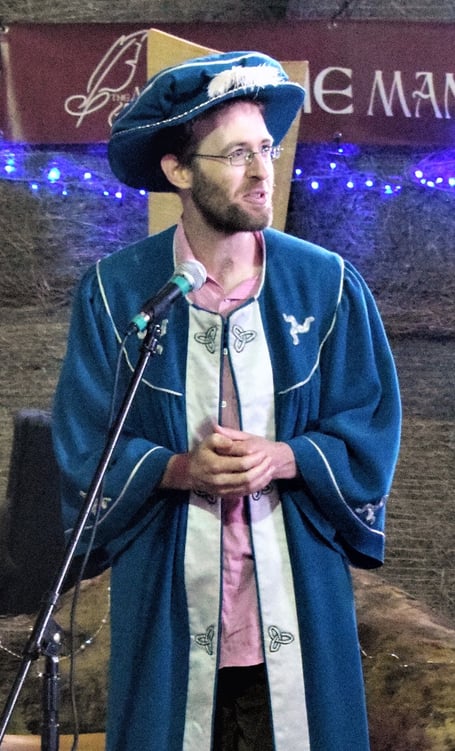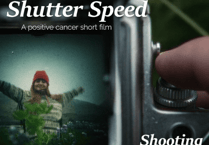Michael Manning is the eighth Manx Bard.
Each month, Michael will be sharing one of his poems with us, and letting us know some of the thoughts and ideas that inspired it.
I apologise for a poem about death in the dark days of January!
The timing has been dictated by the consultation on the proposed Assisted Dying Bill (what a strange time to ask our thoughts on this), to which the poem responds.
I have spent my working life amongst those often classed as ‘vulnerable’. Very often these men and women have struggled with mental ill health and huge distress.
Legislation sends an important signal about what is acceptable and my concern with any form of assisted dying is the impact it will have on the weakest in our midst.
Some options are not good to have, in any circumstances.
The rights of the strong must not compromise the protection of the weak.
While the poem addresses a situation beyond what the proposed Bill contains the examples in places such as Canada and the Netherlands show how hard it is to maintain safeguards when any form of assisted dying is permitted.
It is difficult to argue against a logical extension of the right to end your life, once granted, extending to everyone, at all ages.
For those who are poor, ill, traumatised or excluded from society death can seem, and now is in other jurisdictions, the best answer.
I am appalled at the wider context, where local and global crises, inequalities and injustices demand our attention and action.
We need greater kindness and compassion in the face of death and terminal illness.
We need to continually improve our palliative care and increase access to it.
We need to remember that even facing such personal and painful struggles we are not alone, we belong to each other and our choices affect one another. This poem, perhaps more than others, can only be offered in a spirit of humility.
I am well aware that my perspective is limited: I’m a young man in good health.
It’s important that we hear all the voices we can.
The consultation can be accessed at https://consult.gov.im/private-members/assisted-dying/ and is open until January 26.
The lessons we will teach to our children
Death is a right (in a society where you have no right
to housing, purpose, food; absent all that’s bright,
we may assist you to die; we will not help you live).
Death can be controlled (listen to the medical prognostications,
ignore mistakes in terminal deliberations.
We can know the day and hour).
Death is an ally (all the drab crises rear their head:
a burning world, the self-harm memes, mental ill health:
you’re better dead).
Death is cheap (and painless, and quick; it’s expensive to bear
the vulnerable in their vast complexity, to care;
it costs too much).
Death is private (your life is your own. You are alone.
Death is for the calm, the rational, the strong;
only the weak need pretend that they belong,
that there might be some greater solidarity,
as if your absence will be missed.
As if your life mattered to anyone but you).
Death is the answer (to every question, really:
you’ll never solve poverty or inequality or sorrow;
never will. But we can kill…).
Death is the end
of every breath.
Death is your friend.
And when we have legislated and enacted our necrotic rights,
tattooed death’s lessons deep, deep within
bone, mind and skin,
and Death sits welcome at our table with his
red and cheery face, his plastic raiment,
cloaked with bureaucracy and paperwork, clutching forms…
we will look for Life, but Life,
ruined and shy, stubborn and precious Life
(in all its brave-beauty-and-bane,
all scar-shining-gentle-and-tenderness,
all its clean-courage-whetted-in-wilderness
and the song-in-the-face-of-the-ruinous,
torn-tangled, lost-in-the-luminous,
all its hope-furling-and-curling-as-flame
swift-soaring-and-scorning-the-shame,
all wind-dancing-wonder-beyond-any-name
and the kind-hands-to-hold-us-in-spite-of-the-pain,
in all its scattered and shattered significance,
its mongrel magnificence)
will be gone.

-with-his-son-Bruce.jpeg?width=209&height=140&crop=209:145,smart&quality=75)



Comments
This article has no comments yet. Be the first to leave a comment.